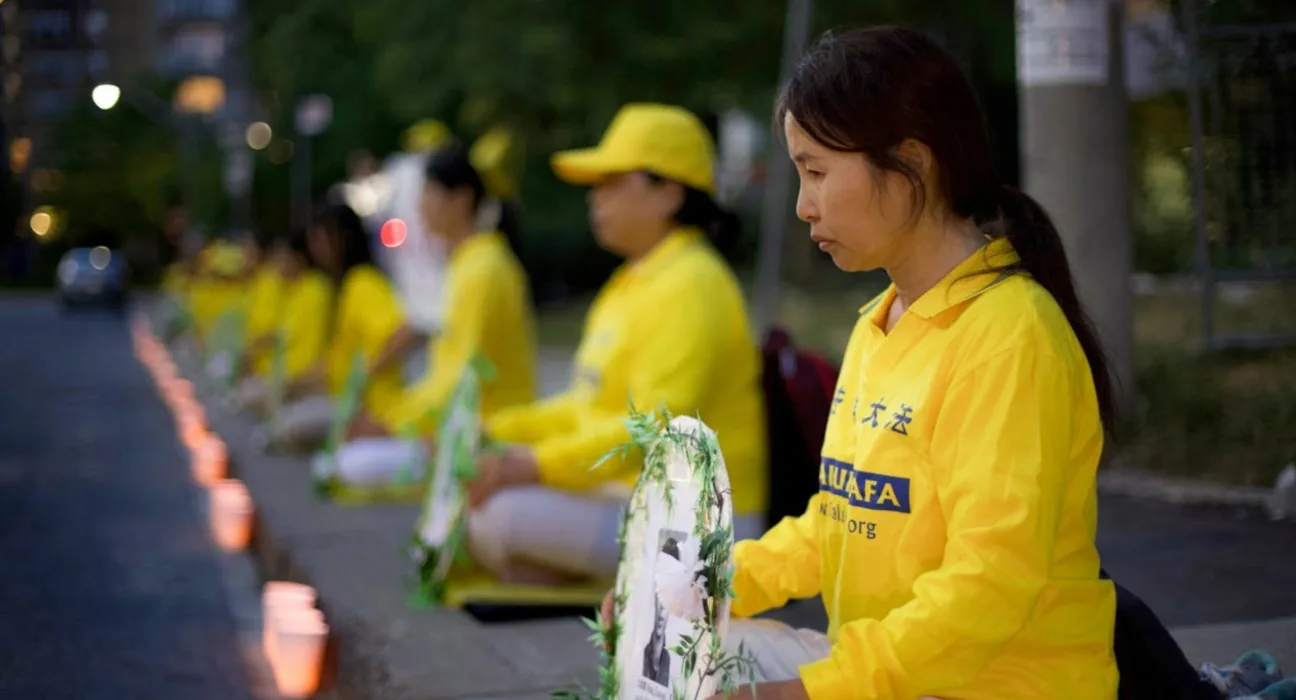Falun Gong is a modern spiritual movement that blends elements of Buddhism, Taoism, and traditional Chinese practices. It is also known as Falun Dafa. Developed in China during the late 20th century, it emphasizes personal cultivation through a combination of slow physical exercises, meditation, and a moral code rooted in truthfulness, compassion, and tolerance.
At the heart of Falun Gong is the belief in cultivating both the body and mind. Practitioners perform a series of standing movements called Xiu Lian, which are similar in pace and structure to tai chi. These gentle exercises are designed to activate the Falun—an energetic wheel believed to reside in the lower abdomen. The Falun is visualized as continuously spinning and represents the individual’s spiritual core. By nurturing this center, followers aim to enhance their physical health, mental clarity, and spiritual depth.
But Falun Gong goes far beyond a movement. It’s a path of ethical refinement, encouraging practitioners to develop inner strength through qualities like forgiveness, restraint, and the willingness to let go of selfish attachments. This internal work, known as Xinxing, is considered essential for spiritual growth and is thought to open communication with higher-level beings who offer guidance and protection.
More: What is Buddhism? A beginner’s guide to its core beliefs
A contested history of Falun Gong
Although Falun Gong gained widespread popularity during the 1990s, especially in China, it quickly came into conflict with the Chinese government. Authorities became concerned about its rapid expansion, informal leadership, and claims that it could replace conventional medicine. The situation escalated in 1999, when tens of thousands of practitioners staged a silent protest in Beijing, prompting the government to ban the practice and label it a “cult.”
Since then, Falun Gong has faced significant repression, including mass arrests, imprisonment, and alleged human rights violations. Reports from international organizations and the UN suggest that many practitioners have been subjected to harsh interrogation and that some were victims of forced organ harvesting. Despite the crackdown, the movement has continued to grow abroad, with its central organization now based in New York.
More: Differences between Theravada, Mahayana, and Zen


A decentralized practice with global reach
One of the distinctive characteristics of Falun Gong is its decentralized, non-hierarchical structure. Li Hongzhi is acknowledged as the founder and spiritual guide. Despite that, the movement does not operate through a rigid organizational hierarchy. There is no formal clergy, no mandatory membership process, and no physical temples or designated sacred spaces. Practitioners are referred to simply as “students” or “cultivators”. They gather informally in parks, libraries, and other public places to practice the exercises, study the core texts and discuss moral principles.
This emphasis on self-directed spiritual development sets Falun Gong apart from many traditional religious systems. Individuals are encouraged to internalize the teachings and apply them in everyday life. The practice does not rely on external intermediaries or ritualistic structures. At its core, Falun Gong teaches that truthfulness (Zhen), compassion (Shan), and forbearance (Ren) are universal moral laws. When practiced sincerely and consistently, these values can guide personal growth.
However, this autonomy has also contributed to divergent interpretations of Li’s teachings. Some statements—such as those concerning malevolent extraterrestrial or spiritual entities, or his claims about supernatural abilities—have drawn public skepticism and criticism, especially from secular institutions and medical communities. Critics argue that such beliefs push Falun Gong toward the realm of pseudoscience or cult behavior.
Yet supporters and practitioners often emphasize a different narrative. For them, these metaphysical ideas are secondary to the core benefits they experience: improved physical health through meditative practice, greater emotional balance, and a moral compass grounded in timeless values. Many adherents claim significant healing—both physical and psychological—resulting from the discipline of daily exercises and ethical reflection.
More: 7 chakras and how they influence your well-being
Modern relevance
Today, Falun Gong continues to attract followers across the globe, particularly among individuals searching for a more integrated path to well-being, one that nurtures both body and spirit. For many, it offers a rare balance: the calm precision of physical practice, the depth of inner reflection, and a clear ethical framework rooted in timeless values. These elements make it especially appealing in a world marked by emotional exhaustion, information overload, and spiritual disconnection.
Despite the political tensions and controversies surrounding the movement, practitioners often describe Falun Gong as a deeply healing discipline. It helps them find clarity amid confusion, resilience amid stress, and a deeper sense of purpose that transcends everyday concerns. The simple, meditative exercises—combined with daily moral cultivation—become anchors in a rapidly shifting world.
In an era dominated by speed, consumerism, and distraction, Falun Gong presents a countercultural alternative: a return to stillness, simplicity, and the transformative strength of silent discipline. Rather than chasing external success, it invites a return inward—to discover peace not by doing more, but by aligning one’s life with values that endure. More: Top NLP techniques for personal growth and success







